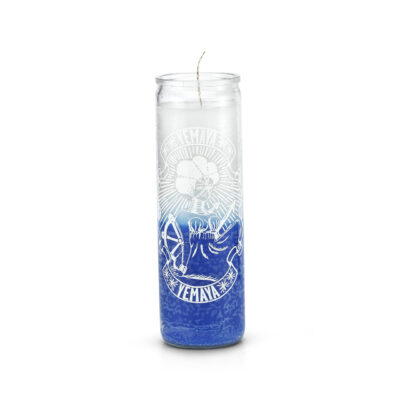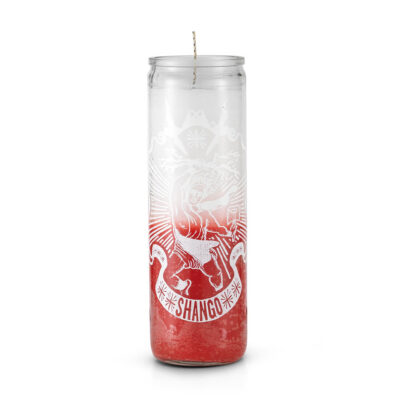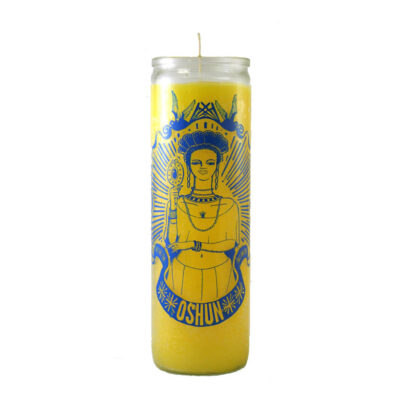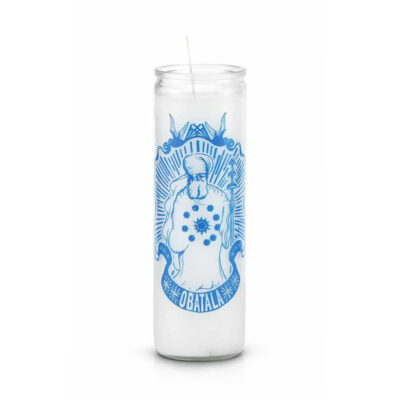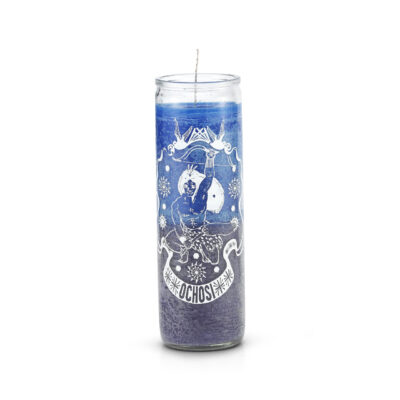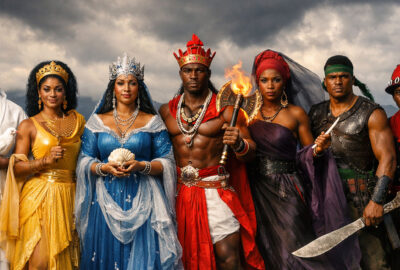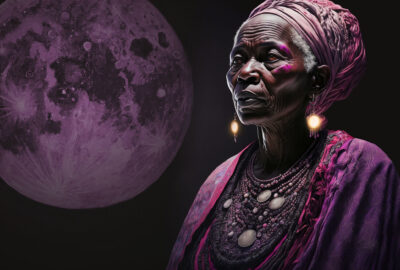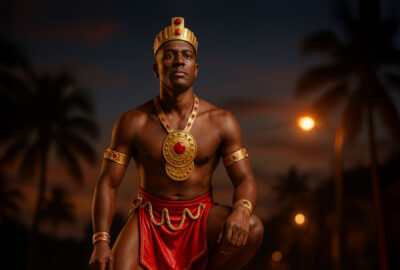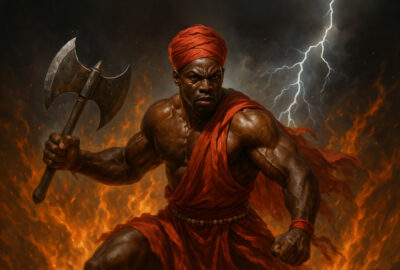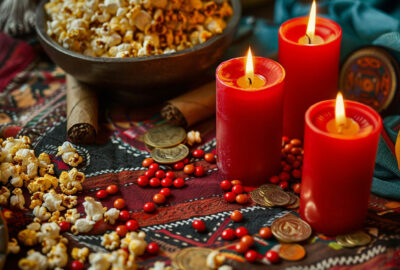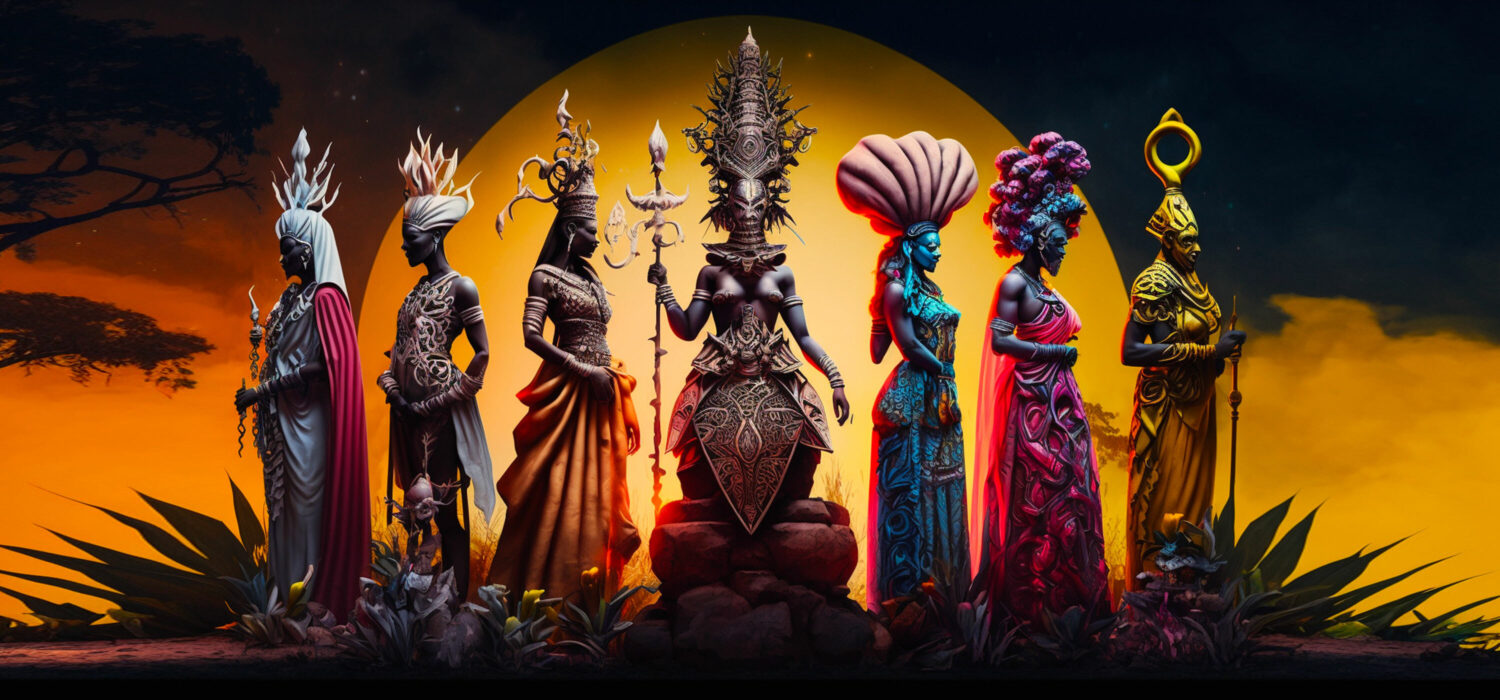
The Days of the Week Each Orisha Rules
For practitioners of the Yoruba religion, as well as those who follow the related traditions of Santeria and Candomble, understanding which Orisha rules each day of the week is an important part of their faith. By knowing which Orisha is associated with each day, followers can better connect with these powerful deities and seek their guidance and support. Each Orisha has its own unique qualities and characteristics, and by understanding which Orisha is ruling a particular day, practitioners can focus their spiritual practices and offerings on that Orisha.
In the Yoruba religion, the Orishas are believed to have a direct influence on daily life. By honoring and appeasing these deities, practitioners can seek their protection, guidance, and blessings. The association between the Orishas and the days of the week is an important aspect of Yoruba spirituality, as it provides a framework for connecting with these deities on a regular basis.
In Santeria and Candomble, the Orishas have been adapted into new contexts and are often syncretized with Catholic saints. Nevertheless, the association between the Orishas and the days of the week has remained an important part of these traditions. Spiritual practitioners may use this information to better connect with the Orishas and their role in their faith.
Overall, the knowledge of which Orisha rules each day of the week is an essential part of Yoruba, Santeria, and Candomble religious practices. It helps practitioners to deepen their spiritual connections, seek guidance and support from these powerful deities, and strengthen their faith.
Sunday: The Orisha Obatala
Obatala, a revered Orisha in the Yoruba tradition and its diaspora religions is often associated with Sunday, a day known for peace and restoration. Known as the Sky Father and the creator of human beings, Obatala is a deity of wisdom, moral righteousness, and tranquility. He is typically depicted in white attire, symbolizing his connection with purity, clarity, and peace.
In the Yoruba tradition, Sunday is considered a day that reflects Obatala's divine essence— a day of tranquility, reflection, and rejuvenation. As the divine sculptor of human bodies and patron of all things pure, Obatala is often called upon for guidance in matters of ethics, justice, and personal growth. His protective and calming energy is seen as especially potent on Sundays when many followers choose to make offerings and perform rituals to honor him.
In Santeria and Candomble, Obatala's association with Sunday is also recognized. His qualities of wisdom, clarity, and moral righteousness align perfectly with the energy of this day— a day dedicated to spirituality, introspection, and rest. Devotees of these faiths often make offerings and conduct ceremonies to honor Obatala, seeking his blessings for clarity, purity, and peace in the week ahead.
Despite his peaceful demeanor, Obatala commands profound respect. Followers look to him for the ability to bring forth clarity, foster personal growth, and provide protection. Offerings to Obatala often include white items and cool liquids, which are believed to please him and invite his blessings.
Monday: The Orisha Elegua
Elegua, also known as Eshu, is one of the most respected Orishas in the Yoruba religion. Known as the deity of crossroads, choices, and opportunities, Elegua is the gatekeeper between the mortal realm and the spiritual world. He is usually represented as a young boy or an old man, symbolizing the beginning and end of life. Elegua is the ruler of Monday, the first day of the week, in the Yoruba tradition.
Elegua is regarded as the communicator and protector, offering wisdom and guidance to his followers. He is associated with the balance of joy and sorrow, and it is said that he brings good fortune to those who honor him. It is believed in Yoruba culture that Elegua's energy is particularly potent on Mondays, and many people make offerings and perform rituals to honor him on this day.
In Santeria, Elegua is often associated with Monday, his qualities of wisdom, balance, and communication are seen as aligning with the energy of this day. In Candomble, Elegua is also associated with Monday, which is thought to be the day of the week most aligned with his divine authority to open and close paths.
Tuesday: The Orisha Ogun
Ogun is one of the most powerful and widely revered Orishas in the Yoruba religion. This mighty Orisha is the god of war, metal, and technology. He embodies the fierce qualities of strength, courage, and perseverance. Ogun is often depicted as a warrior with a machete or a blacksmith working with iron. In the Yoruba tradition, Ogun is widely accepted as the ruler of Tuesday, the second day of the week.
Ogun is revered for his powerful energy and his ability to overcome obstacles and challenges. His association with iron and metal is seen as symbolic of his ability to cut through obstacles and forge a path forward. In the Yoruba tradition, Ogun is called upon for protection and guidance, particularly in matters related to war, hunting, and metalworking.
In Santeria and Candomble, Ogun is also associated with Tuesday, and his qualities of strength and perseverance are seen as particularly relevant on this day. In these traditions, Ogun is often syncretized with Saint Peter, the Catholic patron saint of blacksmiths, and is worshipped through a variety of rituals and offerings.
Despite his association with war and violence, Ogun is also revered for his ability to protect and defend his followers. Many people make offerings to Ogun in the form of bay rum, tobacco, and other items that are believed to be pleasing to him.
Wednesday: The Orishas Oya and Babalú-Ayé
Oya, also known as Yansa, is one of the most influential Orishas in the Yoruba religion. She governs the winds, storms, and transformative forces of nature. Often symbolized by the colors red and purple, representations of her strength and regality, Oya is typically depicted as an indomitable warrior woman armed with a sword or a whip. Within the Yoruba tradition, Oya holds dominion over Wednesday, the third day of the week.
This dynamic spirit is renowned for initiating substantial changes in individuals' lives. Admired by her followers for her vitality and decisive action, Oya specializes in transformations and significant life transitions. Her association with the wind and storms signifies her ability to clear outdated patterns and facilitate new growth and development. Her followers respect Oya for her power, agility, and protective nature, as well as her compassionate care for those who express steadfast faith in her.
In both Santeria and Candomble traditions, Oya's attributes of change and transformation are particularly emphasized on Wednesday. In these traditions, Oya is often syncretized with the Catholic Saint, Our Lady of Candelaria, and she is honored through a variety of rituals and offerings.
Despite her formidable power, Oya is also celebrated for her nurturing and protective energy. Legends attribute to her the ability to heal and restore harmony. Her followers believe she provides assistance and encouragement to those who seek her aid, valuing her ability to restore balance and offer guidance. Oya is often honored through offerings of fruits, grains, and other items believed to please her.
Also linked with Wednesday in the Yoruba religion, Babalú-Ayé is revered as the Orisha of disease and healing. Often depicted as a homeless man walking with crutches, Babalú-Ayé is known to be a powerful force in health matters, given his dominion over all diseases and ailments. Though Oya remains the primary Orisha associated with Wednesday, rituals, and offerings to Babalú-Ayé are common on this day, particularly for those seeking healing or protection from illness.
Thursday: The Orishas Orula and Obatala
Orula, also known as Orunmila, and Obatala are two significant Orishas in the Yoruba religion, and they are often associated with Thursday in several traditions.
Orula, on the other hand, is revered as the Orisha of wisdom, knowledge, and divination. Known as the master of the Ifa divination system, Orula is believed to have direct access to the knowledge of destiny and fate. He offers guidance to humanity about the future and the paths they should choose. Like Obatala, Orula is also associated with Thursday in many traditions, a day that is seen as especially aligned with his profound wisdom and divine insight. Orula is often syncretized with the Catholic Saint Francis of Assisi, and is worshipped through a variety of rituals and offerings. Many people make offerings to Orula in the form of kola nuts, cowrie shells, and other items that are believed to be pleasing to him.
Obatala, often referred to as the Sky Father, is the Orisha of wisdom, clarity, and moral righteousness. He is known as the creator of human beings and is associated with purity and ethical behavior. Obatala is often depicted wearing white, symbolizing his connection with purity, wisdom, and peace. In the Yoruba tradition and its diaspora religions, Obatala is frequently honored on Thursday, a day that carries a special connection with his divine essence.
In both Santeria and Candomble, Thursday is a day when the energies of Obatala and Orula are particularly potent. Their qualities of wisdom, clarity, and knowledge of destiny are seen as especially relevant to this day. Adherents of these faiths often make offerings and perform rituals to honor these powerful Orishas, seeking their guidance and blessings in their lives. Despite their different roles within the pantheon of Orishas, both Obatala and Orula are revered for their wisdom and guidance, offering their followers the tools to navigate life's challenges with clarity and understanding.
Friday: The Orishas Shango and Oshun
Shango is one of the most revered and powerful Orishas in the Yoruba religion. He is a god of thunder, lightning, justice, and courage. Shango is often depicted as a robust and muscular man wielding a double-headed axe, a symbol of his divine authority and power. In certain traditions, Shango is widely recognized as the ruler of Friday, the fifth day of the week.
Shango is celebrated for his bravery and his unyielding sense of justice. He is often invoked in situations requiring courage, fair judgment, and protection. As the deity associated with thunder and lightning, Shango is seen as a symbol of sudden change and transformative energy. He is also closely linked with dance and the rhythmic aspects of music, often being called upon for vitality and passion.
In Santeria and Candomble, Shango is also associated with Friday, and his qualities of justice, courage, and power are seen as particularly relevant on this day. In these traditions, Shango is often syncretized with the Catholic Saint Barbara and is worshipped through a variety of rituals and offerings.
Despite his association with force and power, Shango is also known for his protective nature. Legend holds that he has the power to protect his believers and to deliver justice for those who have been treated unfairly. Many people make offerings to Shango in the form of red fruits, spicy foods, and other items that are believed to please him.
Oshun, also widely worshipped in the Yoruba religion, is a goddess who represents love, fertility, and beauty. Associated with sweet water, gold, and honey, Oshun is frequently depicted as a stunning woman with flowing hair, holding a mirror. Though Shango is recognized as the primary Orisha for Friday in some traditions, Oshun's qualities of love, beauty, and creativity are also deeply respected and invoked on this day. In these traditions, Oshun is often syncretized with the Catholic Our Lady of Charity and worshipped through diverse rituals and offerings. Many followers make offerings to Oshun in the form of flowers, perfume, and other items pleasing to her.
Saturday: The Orisha Yemaya
Yemaya, also known as Yemoja, is a revered Orisha in the Yoruba religion and its diaspora. Representing the vast ocean, motherhood, and the source of life, Yemaya is often depicted as a mermaid or a woman carrying a fish. She is symbolically associated with water, particularly the sea, embodying nurturing, healing, and protective qualities. In many traditions, including those of Yoruba, Santeria, and Candomble, Yemaya is widely accepted as the ruler of Saturday.
Regarded as the Universal Mother, Yemaya carries the essence of nurturing and loving-kindness. She is called upon for guidance in matters of family, fertility, and personal growth. Her energy is seen as especially potent on Saturdays when rituals and offerings are made to her for protection, healing, and prosperity.
In Santeria, Yemaya's association with Saturday continues, with her role as the maternal protector aligning perfectly with the energy of the day, bringing nurturing and safety. Similarly, in Candomble, her alignment with the day embodies her vast, profound energy associated with the sea.
Despite her calm and nurturing nature, Yemaya also commands respect as she embodies the power and depth of the sea. Those who follow her respect her for her ability to bring forth life, support growth, and provide protection. Many people make offerings to Yemaya in the form of fruits, flowers, seashells, and other items related to the sea, all believed to be pleasing to her.
Understanding Variations in Orisha Day Associations
The associations between specific Orishas and days of the week can sometimes be complex and variable, given the diversity and historical evolution of traditions like the Yoruba religion and its diasporic derivatives such as Santeria and Candomble. These differences can arise due to geographical adaptations as the faith spread across the globe, varying practices among individual spiritual houses, and personal interpretations based on individual religious experiences. These variations are typically seen as part of the richness and diversity of the faith.
If you're a practitioner and you're unsure about which day to associate with a specific Orisha, the first point of reference should be a consultation with your spiritual leader or elders, especially if you're part of a spiritual house or community. They can guide you according to the traditions of your specific house. At the same time, conducting personal research from reliable sources can provide valuable insights into these practices.
However, it's essential to remember that personal experiences and feelings are a crucial aspect of any faith. The Orishas are spiritual beings, and your relationship with them can be deeply personal and intuitive. In some cases, a practitioner might feel a strong connection with a particular Orisha on a specific day, regardless of traditional associations. Above all, the practice of associating Orishas with certain days should serve to nurture your spiritual connection with these divine entities, emphasizing the significance of personal connection over rigid adherence to rules.

